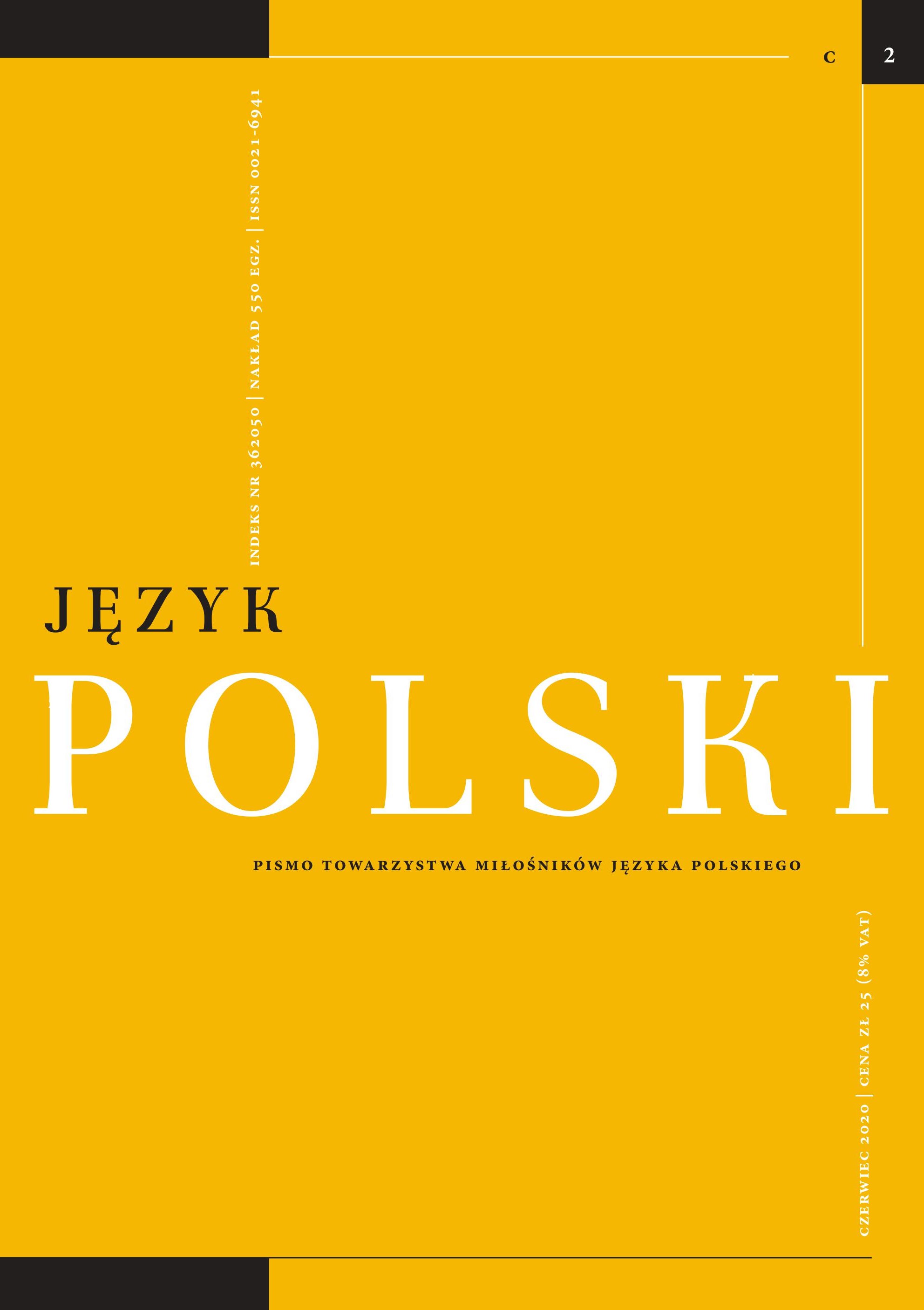Leksemy nazywające członków stanu chłopskiego w polskiej publicystyce oświeceniowej
Lexemes naming members of the peasant state in Polish Enlightenment journalism
Author(s): Krzysztof MaćkowiakSubject(s): Theoretical Linguistics, Applied Linguistics
Published by: Towarzystwo Miłośników Języka Polskiego
Keywords: enlightenment; journalistic style; hyperonym; political and social lexicon
Summary/Abstract: The article contains reflections on the words of a hyperonymous character naming members of the peasant layer (e.g. poddany, rolnik, wieśniak, włościanin), which appeared in Polish journalistic prose of the Enlightenment period. The purpose of the text is: 1) to determine the composition of the aforementioned lexemes, 2) description of selected system features of these units, 3) to determine their text frequency. The author uses elements of semantic field theory in the analysis. The content presented in the article allows us to state that the creators of Enlightenment journalism used a surprisingly large number of lexemes with the status of hyperonyms referring to the peasantry. They were mainly individuals with a long literary tradition. In the eighteenth century, there was a fundamental reinterpretation of this material. Only some of the mentioned lexemes remained in the dictionary system (like the words chłop or rolnik). Others have fallen into disuse (as an expression of plebeusz) or changed their status (as the word gbur which became an insult).
Journal: Język Polski
- Issue Year: 2020
- Issue No: 2
- Page Range: 102-113
- Page Count: 12
- Language: Polish

